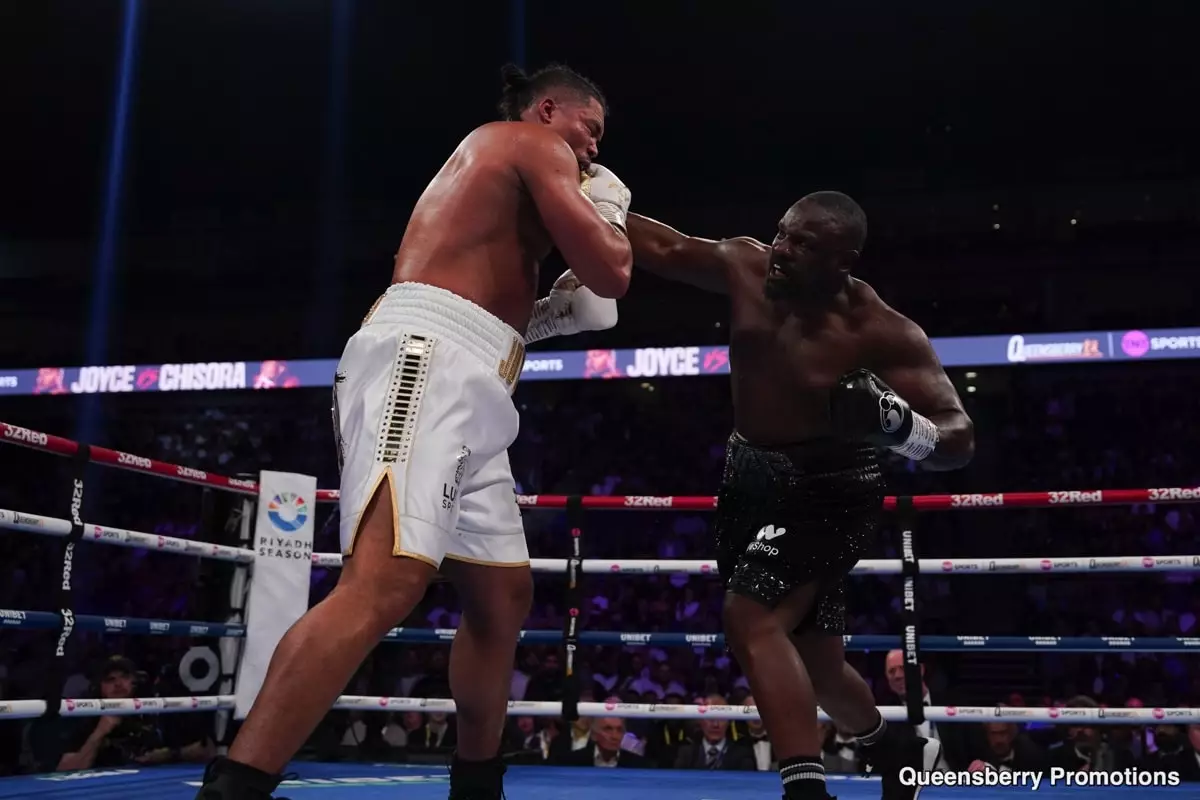In recent years, the heavyweight boxing division has witnessed an intriguing trend: some of the sport’s celebrated titans are continuing to compete at high levels even as they approach or surpass the age of 40. This phenomenon raises questions about the benchmark for retirement in a sport typically dominated by younger athletes. Figures like Deontay Wilder, Joe Joyce, Kubrat Pulev, and Derek Chisora are defying the conventional wisdom about aging in sports, continually stepping into the ring and challenging both themselves and their younger counterparts.
As we approach the forthcoming bouts, there’s a palpable sense of excitement and uncertainty. Wilder, one of the biggest names in boxing, is rumored to make a substantial announcement regarding his return this April. Chisora is set to face Otto Wallin in what promises to be an enthralling contest next month, while Pulev boasts a recent win that has put him back in contention with significant prospects like Fabio Wardley. Meanwhile, the question on fans’ minds is not just whether these fighters can still compete, but how much they have left to give to the sport they love, and whether they can still entertain their devoted audiences.
The Uncertain Future of Veteran Fighters
When examining the prospects of these veterans, it’s evident that their futures hinge heavily on the outcomes of their upcoming fights. For instance, Joyce’s return to the ring on March 1 following a loss against Chisora will be crucial. Fans are eagerly awaiting the announcement of his opponent, with many hoping for a matchup that will not only draw viewers but also showcase his resilience and skills in what many perceive as a pivotal moment in his career. Matching Joyce with an opponent who poses a legitimate challenge is a double-edged sword; it could either reignite his trajectory or derail his comeback before it even truly begins.
Additionally, the prospect of older fighters like Oliver McCall, who is a staggering 59 years old, taking on opponents in the ring is both fascinating and troubling. One has to wonder about the physical toll of continuing to fight at such an advanced age. While the allure of glory in the ring is undeniable, fans and analysts must grapple with the ethical implications of aging athletes pushing the limits of their bodies. There’s an inherent danger in clinging to glory, particularly in a sport as gritty as boxing.
A compelling factor driving these seasoned boxers to remain active is the lucrative financial rewards associated with high-profile fights. With the revenue generated from pay-per-view events and sponsorship deals, it’s no surprise that fighters are enticed to continue competing long after the average athlete would have retired. The recent history of heavyweight boxing indicates a correlation between big names and even bigger paychecks. As long as there is a demand from fans, fighters like Wilder, Chisora, and Pulev will find reasons to step back into the ring.
However, this raises questions about the sustainability of their careers. Fans must weigh their excitement for these matchups against concerns for the fighters’ well-being. There’s a fine line between respecting an athlete’s desire to continue fighting and acknowledging the physical and mental impacts of participating in such grueling bouts at an advanced age.
As we look ahead to 2025, possibilities abound for these heavyweight veterans. Predictions and hope for matchups—like a potential clash between Joyce and Wilder, which fans have long desired—fill the air with anticipation. Such a fight could serve as a barometer for both fighters; a win for either could reignite their career momentum while adding to their legacy.
Moreover, considering the unpredictable nature of boxing, it’s not unreasonable to think that all five veterans—Wilder, McCall, Joyce, Chisora, and Pulev—might secure victories this year. If they do, the heavyweight scene can expect to see these fighters continue their careers well into 2026. The gravitational pull of the ring seems unwavering, drawing these warriors back time and again, regardless of age or prior setbacks.
The landscape of heavyweight boxing continues to evolve, with age no longer serving as a definitive barrier to competition. As fans, we find ourselves both excited and concerned, eager to witness the next chapter in the lives of these aging legends while considering their long-term well-being in the unforgiving sport of boxing.


Leave a Reply